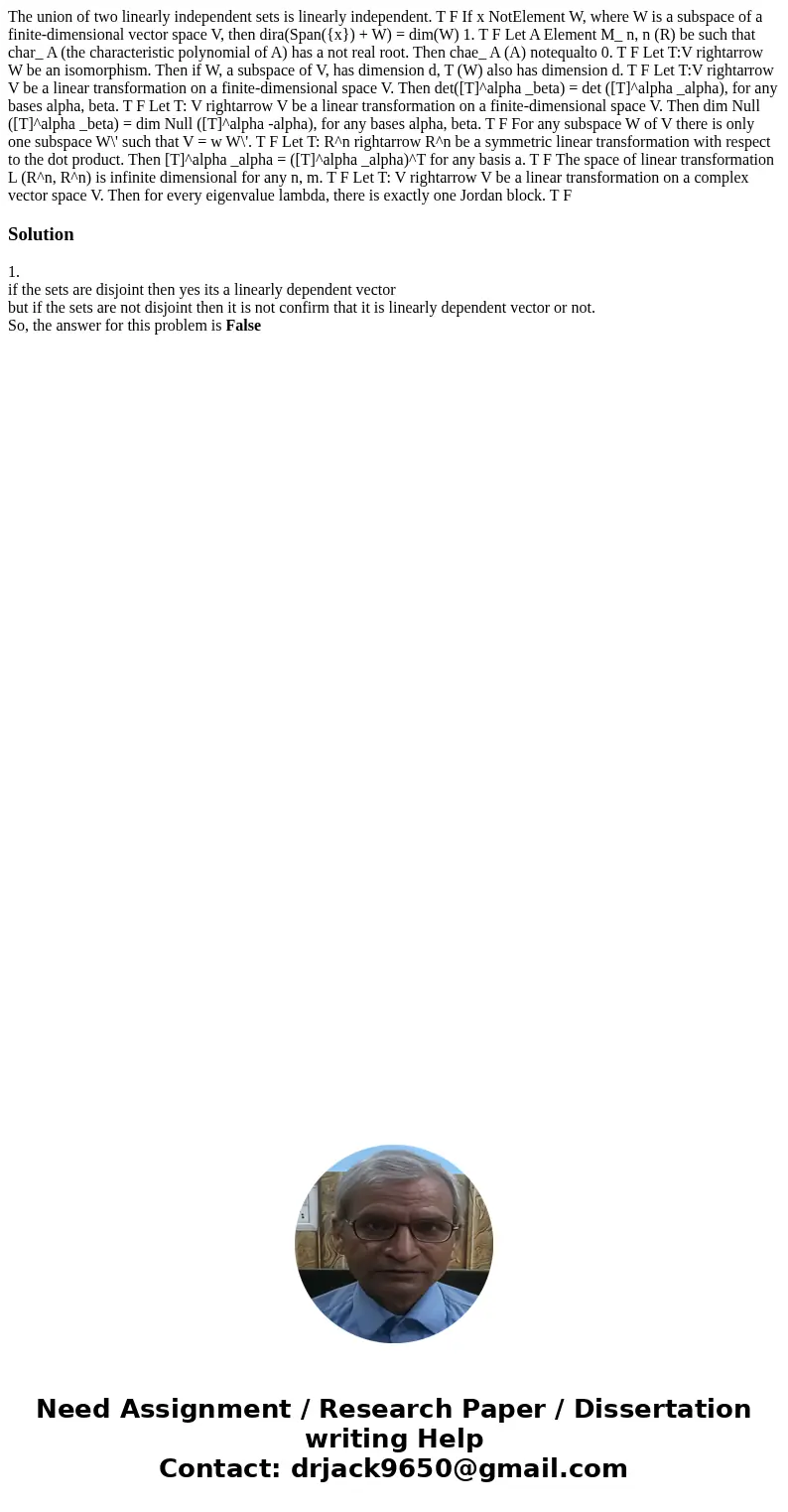The union of two linearly independent sets is linearly indep
The union of two linearly independent sets is linearly independent. T F If x NotElement W, where W is a subspace of a finite-dimensional vector space V, then dira(Span({x}) + W) = dim(W) 1. T F Let A Element M_ n, n (R) be such that char_ A (the characteristic polynomial of A) has a not real root. Then chae_ A (A) notequalto 0. T F Let T:V rightarrow W be an isomorphism. Then if W, a subspace of V, has dimension d, T (W) also has dimension d. T F Let T:V rightarrow V be a linear transformation on a finite-dimensional space V. Then det([T]^alpha _beta) = det ([T]^alpha _alpha), for any bases alpha, beta. T F Let T: V rightarrow V be a linear transformation on a finite-dimensional space V. Then dim Null ([T]^alpha _beta) = dim Null ([T]^alpha -alpha), for any bases alpha, beta. T F For any subspace W of V there is only one subspace W\' such that V = w W\'. T F Let T: R^n rightarrow R^n be a symmetric linear transformation with respect to the dot product. Then [T]^alpha _alpha = ([T]^alpha _alpha)^T for any basis a. T F The space of linear transformation L (R^n, R^n) is infinite dimensional for any n, m. T F Let T: V rightarrow V be a linear transformation on a complex vector space V. Then for every eigenvalue lambda, there is exactly one Jordan block. T F
Solution
1.
if the sets are disjoint then yes its a linearly dependent vector
but if the sets are not disjoint then it is not confirm that it is linearly dependent vector or not.
So, the answer for this problem is False

 Homework Sourse
Homework Sourse